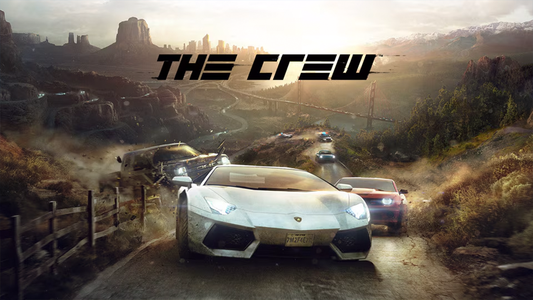There is little doubt that The Witcher 3: Wild Hunt is a very accomplished and impressive game. The critical consensus has been exceedingly positive, praising the success with which it realizes its fantasy world as well as the breadth of experiences on offer.
Continuing the tradition of The Witcher series, it offers a deep story that is colored in shades of grey, presenting you with multiple choices that are defined by the obfuscation of their effects, rather than the clarity of their morality. The difference between Wild Hunt and its predecessors, however, is that here CDProjekt RED has offered an open world to rival the likes of Skyrim, Assassin’s Creed and Rockstar’s library of GTA games along with Red Dead Redemption.
Excepting that last example, Wild Hunt offers the most accomplished, convincing, and perhaps most importantly fictionally and mechanically consistent open world I’ve seen rendered in games. Even alongside Red Dead Redemption, The Witcher 3 has far more depth in terms of what you can do and how you can do it, which only makes it more impressive that CDProjket RED has managed to do what it has. After the better part of a hundred hours with Wild Hunt, I can attribute this success to a few key factors from the perspective of a player.

Coherence
One of the inherent difficulties of presenting a convincing open world to a player is in creating a cohesive whole in terms of the people, geography and activities that the player perceives. Even if you are able to create the cohesive whole, you then need to be able to incorporate the game experience into that whole, which may not necessarily be compatible. Skyrim has difficulties here in wanting to allow the player to be simultaneously leaders of every major faction in its world, some of which are logically contradictory. So instead of trying to work around this problem, its either ignored or some contrivance is created to explain it.
Through playing it, the primary difference between the feel of that kind of design against the feel of Wild Hunt is that in the latter the experience comes out of the world, rather than being pushed into it. One of the most immediate ways this is felt is through the ubiquitous notice boards that stand proud in the center of each settlement in its fictional world. In the previous games these were essentially quest hubs, somewhere to pick up tasks rather than needing to go around looking for giant exclamation marks above NPC’s heads.
"There are constant and consistent reminders that this is a world with a life of its own."
In Wild Hunt these retain that purpose, but they also serve the less obvious task of world-building, with notices to kill monsters surrounded by innocuous information about the village you’re in, such as offers of mundane services or general queries. Some of these are entirely irrelevant to you as a player, while others hint at the larger themes of the area you’re in, but instead of feeling irrelevant they start to push the message that Wild Hunt is eager to communicate: you are not the center of this world, just moving through it.
That doesn’t mean you’re irrelevant to it, but instead that it persists and exists beyond your needs for it. This is a counterintuitive notion when looking at a single-player game, but it’s a commitment to the illusion of the world’s life that works incredibly well. It’s not just the notice-boards, but the geography of the world, from the little clusters of houses that make up the hamlets on the barely-discernible paths, to the claustrophobic cobbled streets of Wild Hunt’s largest settlement, Novigrad. This even extends to the NPCs, with them regularly mistaking you for someone else, mostly because they have no reason to expect you in the first place. There are constant and consistent reminders that this is a world with a life of its own.
Novigrad itself offers a significant testimony to this idea, as it is the central hub of the second quarter of Wild Hunt. It’s a stark contrast to the rolling hills and general wilderness of Velen, the first area, and as poor countryside gives way to the bustling city so too does the experience for the player change. Instead of being always at the ready to fight with bandits and drowners, instead Novigrad offers a criminal underground and a more nebulous idea of civil unrest. Fights are far less frequent, conversations start to dominate the experience, and you have to essentially retrain your expectations for a good dozen hours.
When you marry this commitment to coherence with the already established narrative systems of The Witcher series, that of choices and consequences, and the persistence of characters and your actions towards them, it creates a world that doesn’t feel dependent on the player to exist, no matter how untrue that is in reality.

Mechanics match the theme
When looking for commonalities across open world games, it’s easy to see that breadth of experiences almost always trumps depth of a single experience. The idea of offering something for everyone is most egregious in last year’s Watch Dogs, which had its protagonist Aiden Pearce being able to do so many different activities that he ended up being simultaneously completely undefined as a character and completely unlikable. The problem of mechanical and fictional consistency is one that has plagued the GTA games throughout the series, with GTA V coming closest to offering a protagonist that matches the commonly psychotic behavior of the player in Trevor, but even then that is diluted with the characters of Michael and Franklin, offering an escape from that uncomfortable reflection.
Geralt, the titular Witcher, remains a point of contention among RPG fans. He is a reasonably well-defined character, with a long and storied history, most of which you as a player haven’t born witness to. That means you encounter characters that you do not know but Geralt does, and there is plenty of knowledge that he has about the world that you aren’t necessarily privy to.
"CDProjekt RED do not have to offer a game experience that is all things to all people, but instead an experience that is all things to Geralt of Rivia. "
However, it does offer one huge advantage to CDProjekt RED that allowing you to create your own character would not, and that is a tailored perception of the world. They do not have to offer a game experience that is all things to all people, but instead an experience that is all things to Geralt of Rivia. Nothing that you can do in Wild Hunt feels incongruous with your understanding of Geralt as a player, with the closest to a genuine diversion being horse racing. There are no abstract collectibles, no expectation that you’re suddenly going to be anything other than a Witcher, a profession which is certainly appropriate to base an RPG around, what with it being a monster hunting adventurer.
More importantly, it colors your interactions with those who are strangers to Geralt. With his feline eyes and white hair, he’s instantly recognizable as a Witcher, who are mutated to better facilitate the dispatching of monsters, and so plenty treat you with fear or suspicion. What is more relevant to you is that, as a Witcher, there is an expectation that you will do your job, and you will get paid for it. It removes the strangeness of being expected to help anyone in need that pervades other RPGs, and turns most quests into either a direct trade or an indirect one. You need information, and before someone gives it to you, they want you to do something for them. It’s a slight contrivance, but an acceptable one.
This bleeds over into the main story, which is one that is drawn out of Geralt as a character rather than an attempt to create a power fantasy for the player. That’s not to say playing Geralt isn’t
No tags.





































